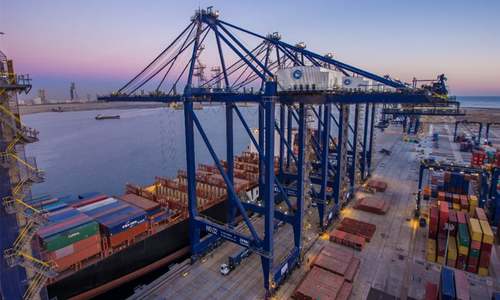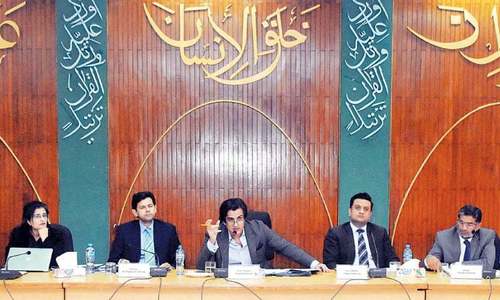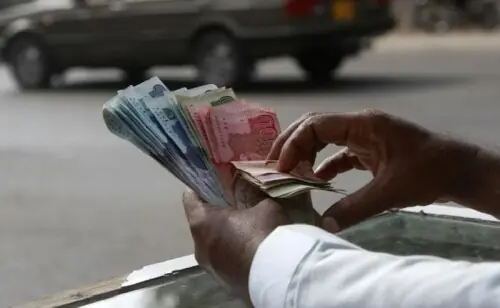China and Pakistan have made strides — particularly in electricity and infrastructure projects — in the first three-year phase of their cooperation under the multi-billion-dollar China-Pakistan Economic Corridor (CPEC). Both countries have had good and not-so-good experiences and are learning about each other’s strengths and deficiencies as they try to build upon lessons learnt.
At the conclusion of the recently held eighth meeting of the Joint Cooperation Committee (JCC), they agreed to conduct at least five in-depth sector studies for future investment cooperation under the framework as Islamabad pursues more financial support and Beijing seeks increased facilitation, improved security and a smooth repayment mechanism. In addition, “both sides agreed to make joint efforts to improve the overall media environment for CPEC cooperation”.
Pakistan made a formal request to the JCC — the highest decision-making body on the CPEC — for “more grant, investment, joint ventures and concessional loan arrangements to strengthen and fast track” transport infrastructure, industrial cooperation and socio-economic development.
Beijing is annoyed at the Sindh government for slow progress on Karachi Circular Railway, which it considers critical for the city’s prosperity
China’s focus during the meeting that ended on Dec 20 was more on putting in place a mechanism that ensures smooth repayments given Pakistan’s financial constraints. It expects Islamabad to further strengthen the security structure and take targeted measures to reduce the threat of terrorism by speeding up the building and deployment of Special Security Division-South. Beijing is also pushing more vigorously for the removal of irritants in the implementation of existing projects.
Led jointly by Ning Jizhe, vice chairman of the National Development and Reform Commission of China, and Makhdoom Khusro Bakhtiar, minister for planning, development reforms, meeting participants appreciated that the CPEC had achieved important milestones of early-harvest projects (EHP) and was now entering a new development stage.
The in-depth studies will be on Pakistan’s power market, a cascade study for hydropower projects all along the Jhelum River, optimisation of overall energy mix, an oil and gas industry development plan and a five-year action plan for cooperation on the highway between China and Pakistan as part of the joint traffic density study.
“(The) results of a joint study on power market of Pakistan will be fundamental for deciding the next step of energy cooperation.” The working on the study has just begun. Pakistan has committed to putting into operation all transmission lines required for the evacuation of energy well before CPEC projects achieve commercial operations to avoid penalties.
The payment of outstanding tariffs for the operational energy projects is a source of irritation for China. The two sides agreed to have scientific planning and amicable negotiations to address the issues arising from energy cooperation and create a common panel under the joint working group on energy for monthly formal and informal communications and consultations.
Pakistan promised a timely recovery of bills from consumers as part of the ongoing campaign to reduce line losses and improve collection through reforms and new technology. But Pakistan also wanted Chinese technical support with respect to technology. A comprehensive technical study will also be carried out to increase the production capacity of the surface mine in the Thar coalfield.
Pakistan has demanded that a major 1,320-megawatt Rahimyar Khan project under CPEC be scrapped on the ground that its next-stage priority was using domestic sources of energy. Hence, the need for maximum benefits from the Jhelum River flows by optimising the combined operation of all cascade projects there.
On the industrial side, China asked Pakistan that the Board of Investment should act as lead agency for industrial development and ensure land, energy, taxation, customs, law and other services from the relevant departments to deal with land prices, park development models and infrastructure services.
Rashakai in Khyber Pakhtunkhwa, Dhabeji in Thatta and M3 in Faisalabad have been selected as special industrial zones for the first phase of development. They will promote Chinese investments in key industries, like textile, petro-chemical and iron and steel.
In infrastructure, both sides are happy with the progress on two big projects: $8.2 billion Mainline (ML-1) from Karachi to Khyber and $2bn Karachi Circular Railway (KCR) besides Eastbay Expressway Gwadar and security arrangements for them. Pakistan has promised to ensure timely land acquisition and demolition for the project implementation.
The preliminary design of ML-1 will be ready this month. The project will be implemented in line with the framework agreement signed in May 2017. This means China will provide up to 85 per cent of the project cost as a loan as opposed to a “build-operate-transfer” model proposed by the PTI government to shift financial responsibility on to the private sector and keep government loans on the lower side.
Beijing is annoyed about slow progress on KCR by the provincial government despite the project being critical and feasible for the growth and prosperity of the country’s largest city. Mass transit projects for Quetta and Peshawar have been put on the back burner for the time being because of a lack of preparedness. These will be taken up once their PC-1s are approved by the relevant government forums.
Noting full operational capability of the Gwadar Port, the two sides agreed to continuously pay high attention to it. Weekly container liner services are calling the port as coal trans-shipment and clinker export take place. The JCC appreciated progress on the Gwadar Free Zone. It agreed to jointly make more efforts to attract qualified companies to invest in the area.
Pakistan was required to provide agreed tax and tariff mechanisms to create a good investment environment leading to the next phase. The two sides have failed so far to finalise the Gwadar Smart City Master Plan, but promised to hold the groundbreaking ceremony for the New Gwadar International Port before March 2019.
Published in Dawn, The Business and Finance Weekly, January 14th, 2019




































